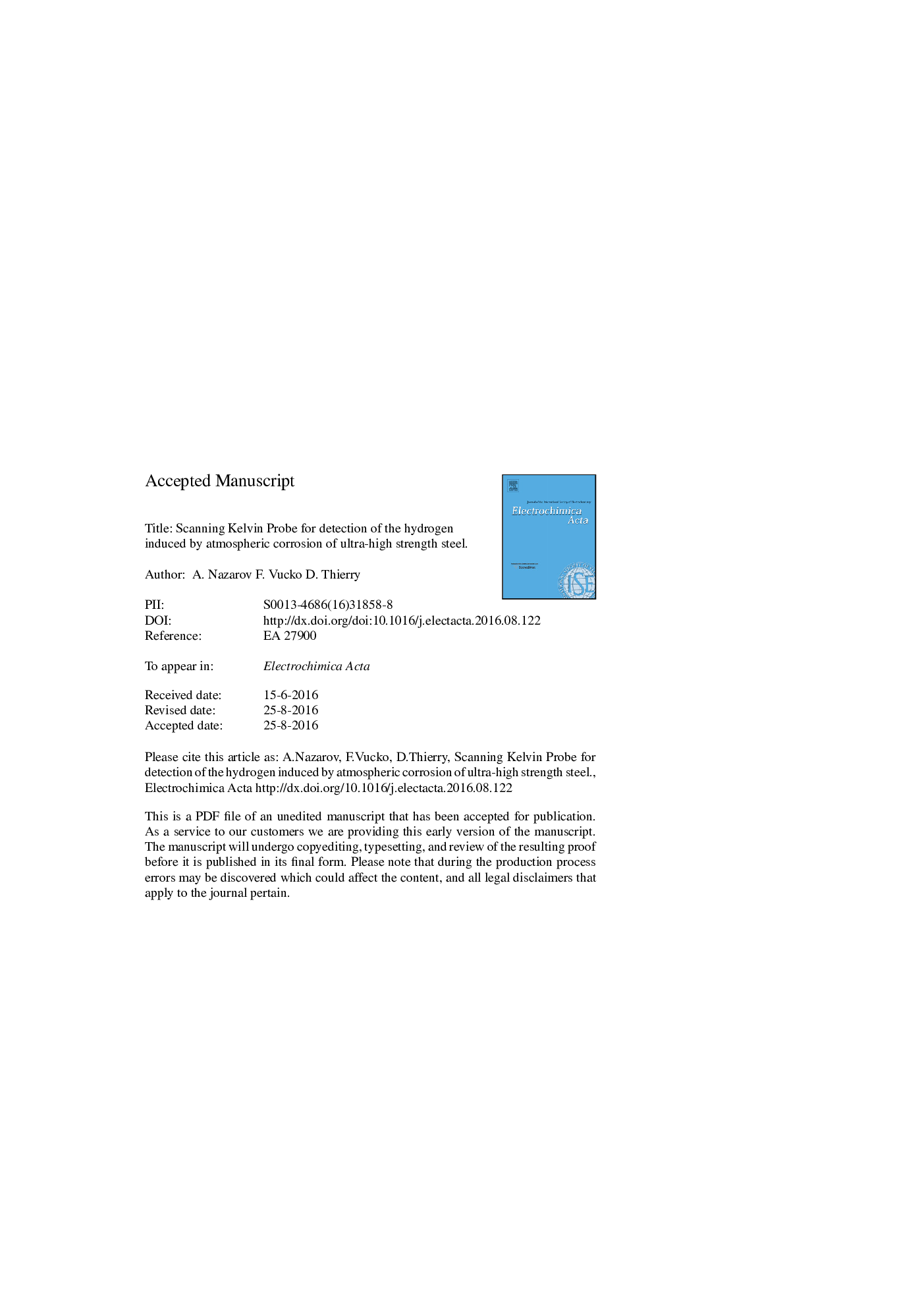| Article ID | Journal | Published Year | Pages | File Type |
|---|---|---|---|---|
| 4767761 | Electrochimica Acta | 2016 | 34 Pages |
Abstract
Scanning Kelvin probe is applied “in situ” to study the hydrogenation of high strength steel, with and without electrogalvanized zinc layer, and a foil of pure iron. SKP visualizes the hydrogen flux from corroding location at the reverse face in real time. Hydrogen is produced during atmospheric corrosion and decreases the Volta potential at the location of emerging due to the reduction of iron species in the oxide film. It is shown that the sources of hydrogen are anodic locations. Different SKP based setups are applied to determine the hydrogen diffusivity and distribution in the steel, in the vicinity to corroding surface.
Related Topics
Physical Sciences and Engineering
Chemical Engineering
Chemical Engineering (General)
Authors
A. Nazarov, F. Vucko, D. Thierry,
